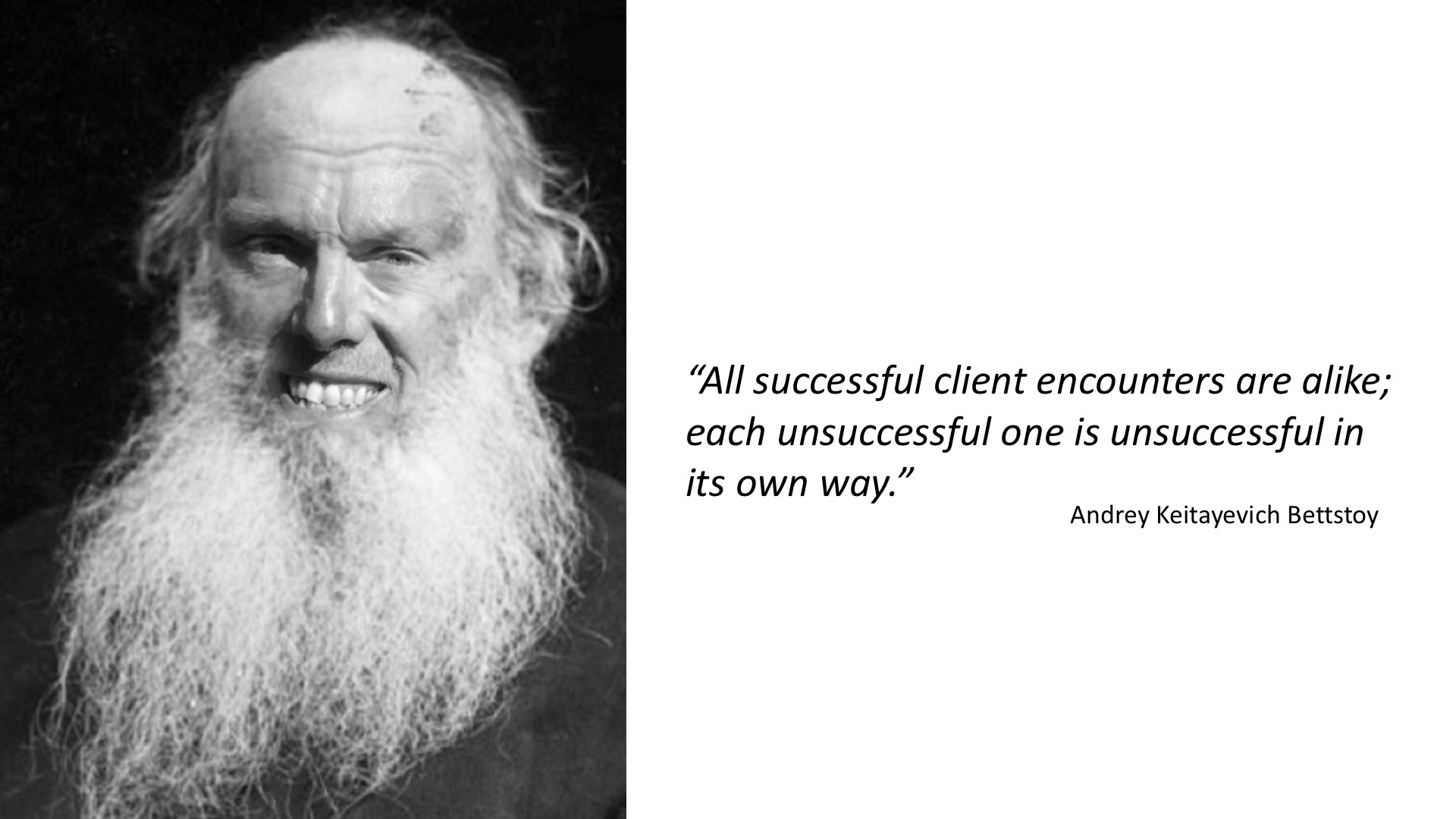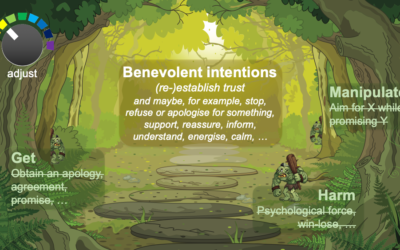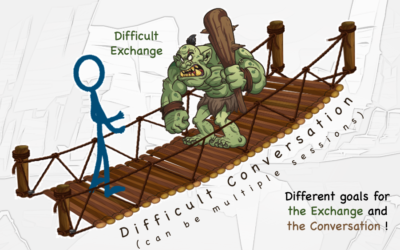Anna Karenina and Client Encounters
All happy families are alike; each unhappy family is unhappy in its own way. This, the first phrase of Tolstoy’s Anna Karenina, is remarkable for how it sticks in the memory. In complex relationships such as with families or clients, Tolstoy teaches us, there is one way to get it right and an almost infinite number of ways to go wrong.
To be happy, a family needs security , physical comfort, time together, rituals, mutual consideration, and so on. All happy families are similar in that they have these things. But just one demon – jealousy, loss, a thoughtless act – can put the whole system out of balance, and there are many demons to choose from.
A recent conversation with a client reminded me of this quotation, which I immediately googled (of course). Apparently, Tolstoy’s observation gave rise to the “Anna Karenina principle”, a rule governing complex systems where just one faulty part can cause the whole thing to fail.
Client encounters follow this principle in that:
• Successful encounters all resemble each other at a certain level: there is a good process; conversations are authentic and productive; they finish with an agreement on what happens next.
• The list of “things not to do” when meeting customers is unhelpfully long.
This surely means that improving our customer-facing skills can’t just rely on trial and error. Hard-won experience that teaches us to avoid certain behaviours is useful up to a point, but there will always remain an infinite number of mistakes that we haven’t committed yet, and therefore haven’t learnt from!
Writing this reminds me of a response from a customer-facing engineer that I once received. Asked to comment on the challenges he might see in his job, he replied, without a trace of humour, “There are no challenges I can’t solve by my 22 years proven FAE/Sales experience.”
Needless to say, this modest chap was not particularly open to work on communication fundamentals. It’s a pity since, just as happy families don’t get that way by accident, nor do they stay that way without effort, successful communicators have to constantly work on improving their skills.
PS. For the avoidance of doubt, the picture is me, Andrew Keith Betts, not Andrey Keitayevich Bettstoy, and the beard is the result of software, not my holidays 🙂 While the image is just for fun, the rest of the article is genuine.






